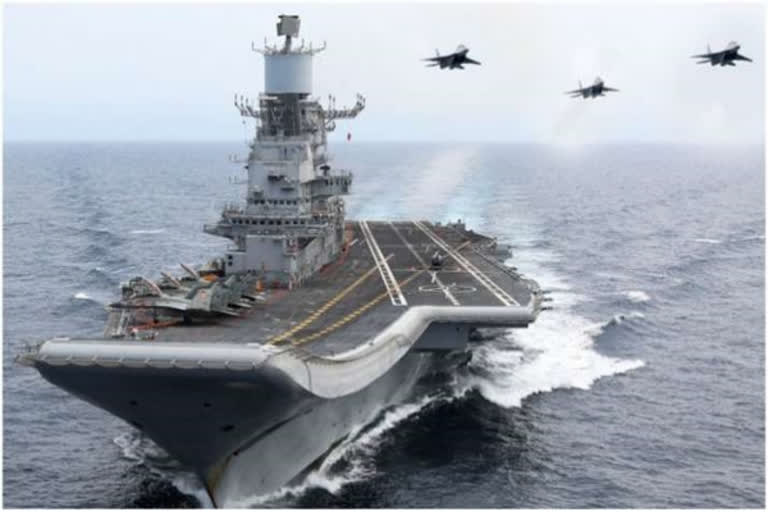New Delhi: Introducing leasing model in the Defence Acquisition Procedure (DAP 2020) will be a path-breaking procedural change as it provides the option to reduce short-term capability gaps considering the long gestation period of shipbuilding contracts., said Vice Admiral G Ashok Kumar, Vice Chief of Naval Staff.
Addressing the eSymposium on 'Leveraging Leasing For Force Level Maintenance & Modernization', organized by FICCI, Vice Admiral Kumar said, “For Indian Navy, we will look towards leasing operational support assets and auxiliaries to enhance our operational capabilities and avoid huge investments in manning and maintaining them.” The Indian Navy is planning to lease certain assets in the medium term to mitigate critical operational capabilities gap, he added.
He further said that the Indian Navy may also look at operational enablers like utility helicopters and unmanned solutions for operational preparedness of the Navy.
Vice Admiral Kumar stated that our future requirements also include capabilities such as space-based surveillance, robust communication networks integrated with AI, modern aircraft, etc. “Capability building is a long term and evolving process that includes industrial capability, management of technology and budget for modernization”.
He added that we are continuously working to identify and mitigate the capability gaps through innovative methods and one such option can be leasing of assets. To meet the emerging challenges and responsibilities, there is a wide range of operational capabilities envisaged.
Also Read:There is scam when Congress involved in defence deals: BJP
Elaborating on the merits of leasing model, Kumar said that it enables further focus on core competence, removes technological complexities, lowers manpower cost for maintenance thereby reducing the overall cost for acquiring an asset.
Highlighting the opportunity in leasing he urged the industry to have and maintain a long-term outlook in this sector. “If the requirements of the three services can be met through leasing provisions, it would be a win-win situation for the Indian industry and the armed forces,” he said.
The on-going modernization process, he said, aims to create capabilities to accomplish a range of missions. A wide variety of such capabilities can now be covered through the provision of leasing and Indian industry can play an important role in meeting these requirements, he added.
Ms Gargi Kaul, Former Secretary Defence Finance, Ministry of Defence, Govt of India said that the addition of leasing as a new chapter in the Defence Acquisition Procedure is a welcome step. She further added that though leasing in India is still low and there is a need to further modify the existing rules in the DAP.
Admiral RK Dhowan (Retd.), Former Chief of Naval Staff; Chairperson, Society for Aerospace, Maritime and Defence Studies (SAMDeS) said that the Defence Acquisition Procedure will ensure a smooth transition through interim mechanism of leasing. We should aim for capacity building and capability enhancement of our armed forces, to increase operational efficiency through leasing.
Mr SP Shukla, Chairman, FICCI Defence and Aerospace Committee and Group President (Defence, Aero, Agri and Steel); Member of the Group Executive Board, Mahindra Group highlighted that there are many countries which have their own leasing models and India should also develop its own model.
Mr Jostein Trones, Director Airborne Surveillance & Remote Sensing, Norwegian Special Mission AS and Mr Sudhakar Gande, Co-Chairman, FICCI Defence & Aerospace Committee and CEO, Jupiter Capital P Ltd; Non-Executive Director, AXISCADES Engineering Technologies Limited also shared their perspective.
